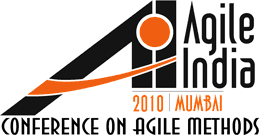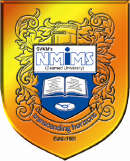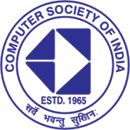 |
 |
|
|
Agile Adoption with Augmented Distributed Team for developing on top of existing applicationA case studyWorking in Agile distributed model is quite challenging. It becomes even more challenging when you become the part of customer team (augmented team). If you enter in such a project which is already in development for quite a long time, it poses different kind of challenges which may not be entirely technical in nature. I worked in one such project and implemented some practices which were quite successful. Again I could see similar patterns in yet another project and after implementing those practices, we came out of mess. I would like to share my experience working with such a team and project. About the case studyThe customer started adopting Agile quite recently and they went for distributed Agile after a while and chose Xebia as their offshore partner. The resultant team involved developers from both Xebia and customer side. It posed its own challenges as India team had to deal with customer and their team mates at the same time. The same developer who was the part of the team, used to give feedback about India team to customer management resulting in clash of interests. The project was already in work in progress for last 2 years. Without much knowledge transfer, it was very difficult for India team to get upto the speed. Customer pressure and lack of required domain/application knowledge went into a vicious cycle of less productivity with burnouts without significant outputs. The presentation focuses on the changes done through:
Project background using AgileI established Agile Maintenance stream in Xebia and identified certain practices which were quite helpful for to work effectively. I gave a presentation on Agile maintenance in Agile NCR 2009 (https://www.slideshare.net/xebiaindia/agile-maintenance-10). Later I worked in a project with Albumprinter involving distributed Agile in augmented team model for a year. After that I have been working to create a travel website elmar.nl along with developers in NL (around 16 people team) right now. Conclusion - 3 key points:1. Important to set right expectations before you start with collocation. Speaker ProfileShriKant Vashishtha is the Principal Consultant at Xebia India, a company specializing in Distributed Agile software development. He is currently responsible for Flex development, exploring new and promising technologies, identifying and establishing best practices of distributed Agile software development and contributing to the technology and people management areas in the organisation. ShriKant graduated from MNNIT, Allahabad and has been working in the IT industry for over 11 years as an Architect, Developer, Agile coach and Consultant to various organizations in US, Netherlands, Singapore and India. He presented on Agile Maintenance in Agile NCR-2009 conference and has written many articles in 'JavaWorld' and 'OnJava'. Apart from technology his passions include poetry, music, philosophy and counselling. To know more about him, take a look at http://svashishtha.wordpress.com/about/ |
|
|||||||||||||||||||||||||||||||||||||||||||||||||||||||||||||||||||||||||||||||||||||||||||
| 2005-2019 Copyright © Agile Software Community of India |
| Website designed and hosted by Xnsio |








